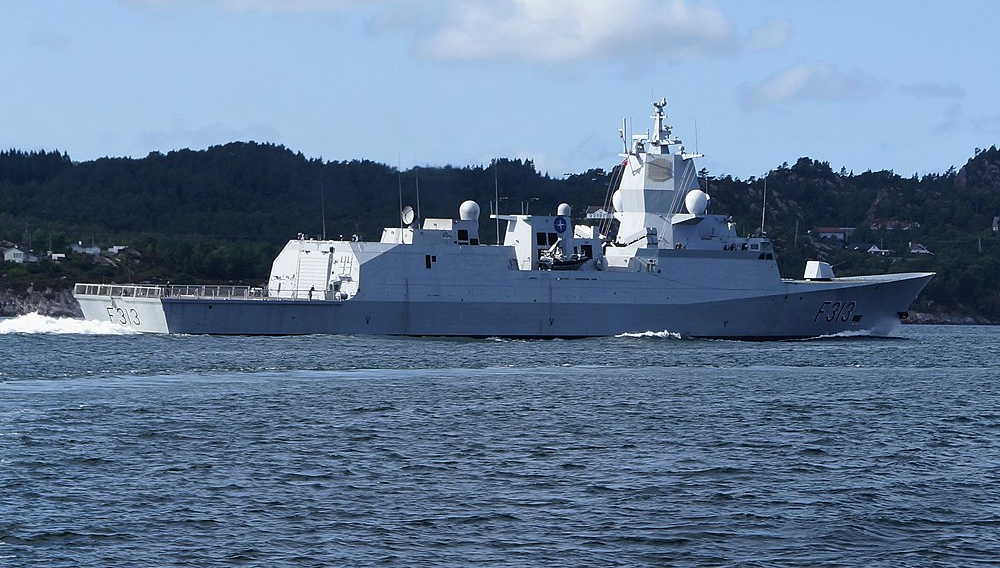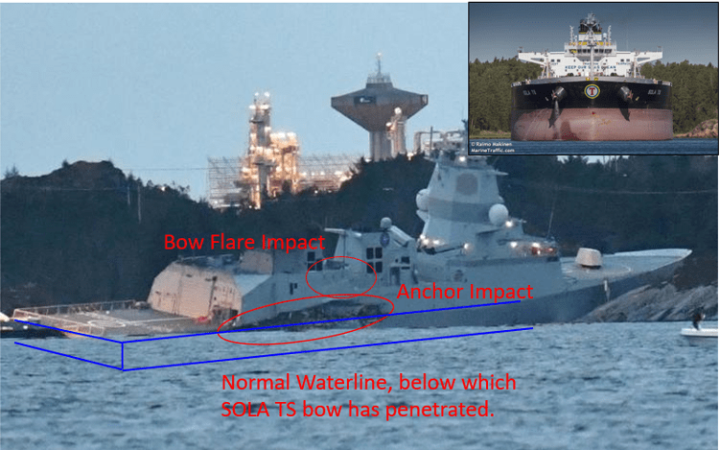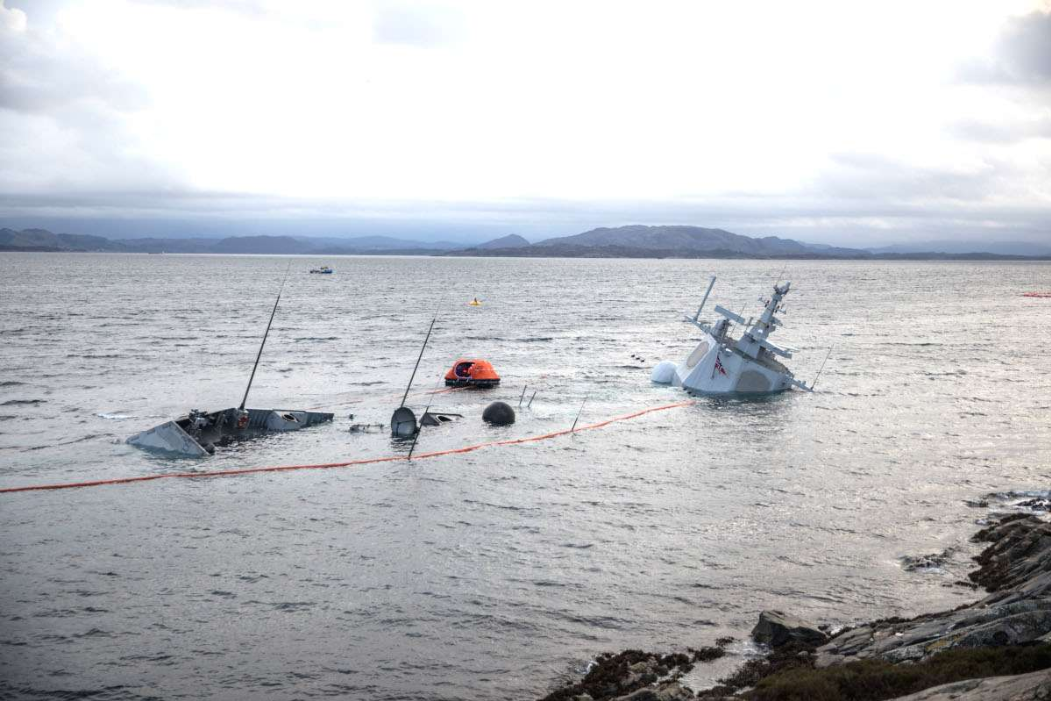The Verdigris blog has a very interesting analysis of what seems to have happened leading up to the collision of the Norwegian frigate HNoMS Helge Ingstad and the tanker Sola TS in the restricted waters near Bergen:

HNoMS Helge Ingstad, a Fridtjof Nansen-class frigate commissioned in 2009.
Photo detail via Wikimedia Commons
The island west of the collision location is Alvoyna in the Oygarden municipality, and the oil terminal at Sture is a busy port that receives large tankers such as the Sola TS which was involved in the collision. Otherwise the islands in this area are relatively sparsely populated with just 4,900 or so inhabitants across the whole municipality. From that we can assume that there would be few lights at night to mark the shoreline, with the exception of the oil terminal which would be brightly lit. The channel is approximately 2 miles wide but is relatively deep, narrowing south of Sture into a channel little over a mile wide.
The collision occurred at approximately 0400 local time on Thursday 8th November 2018. Sunset the previous evening was at approximately 1623; sunrise would not be until 0821. There was no moon; the moon set at around 1718 the previous day and would not rise until 0847. We cannot be certain of the weather conditions which may have restricted visibility. However, there is no evidence of weather or high seas on the radar picture and if visibility was restricted by rain or fog, a ship would be unlikely to be sailing at high speed.
Finally the ships involved. Sola TS is a Maltese flagged oil tanker of 62,000 tonnes. We know she had 23 personnel onboard and after the collision was reported to have little or no damage. Merchant ships are usually well built, especially when carrying petroleum cargoes which if leaked could have devastating environmental consequences; consequently the lack of damage is hardly a surprise. As a result they are sluggish, slow to manoeuvre or accelerate/decelerate. They are not, however, considered to be ‘restricted in their ability to manoeuvre’, a special condition identified in the International Regulations for the Prevention of Collision at Sea – the IRPCS or ‘Rules of the Road’ – this is a condition applied only to vessels which are restricted by their work, such as picking up or laying submarine cables or pipelines, launching or recovering aircraft, carrying out underway replenishment, etc. Sola TS might have been slow to manoeuvre, but she is not exceptional and is unlikely to have carried any special status. Sola TS had a tug, Tenax, in company and might conceivably have been considered to be under tow; however, once again no special status is conferred unless the nature of the tow made it particularly difficult to alter course. The tug is more than likely to have been pacing the tanker, probably not connected and likely a precaution for a fully laden oil tanker in narrow waters.
Helge Ingstad, by contrast, is a Fridtjof Nansen-class air defence frigate of just 5,290 tonnes. Lightly built for speed and manoeuvrability, warships are invariably less robust than merchant ships, but are more tightly compartmented and have more complex damage control arrangements to compensate.

Very quickly after the collision, the Helge Ingstad was run ashore to prevent the ship sinking, but the ship slid down further into the water, despite attempts to keep her close in shore, and eventually slipped down almost completely beneath the waterline:

HNoMS Helge Ingstad after grounding, 13 November 2018.
Photo via The Drive.
The consensus among the commenters is that the ship can probably be re-floated, but that the damage to the electronic gear onboard most likely renders her a complete loss:
Regardless of the circumstances, the loss of Helge Ingstad, even temporarily, is a major blow to the Royal Norwegian Navy, which relies on the Fridtjof Nansen-class as its primary surface combatants, especially in a time of increased tensions between Norway and its NATO allies and Russia. The frigate had been on its way back from a massive NATO-led exercise, called Trident Juncture, the largest such drill in decades, when the accident occurred.
If it turns out that Helge Ingstad is a total loss, which seems likely at this point, it could have a significant impact on Norwegian naval operations for years to come. In the meantime, we will continue to follow this story closely and provide any additional updates as they become available.






